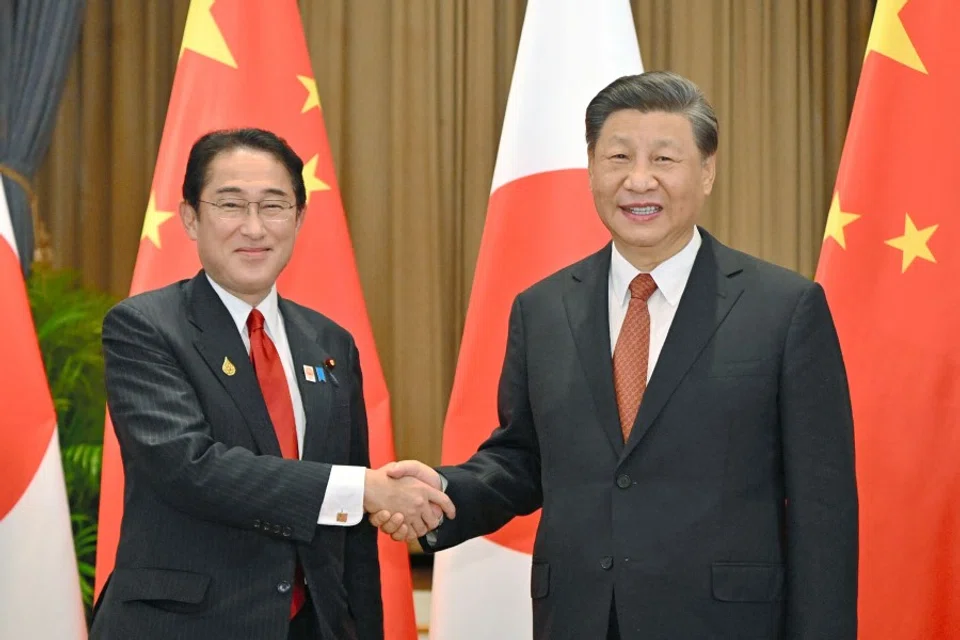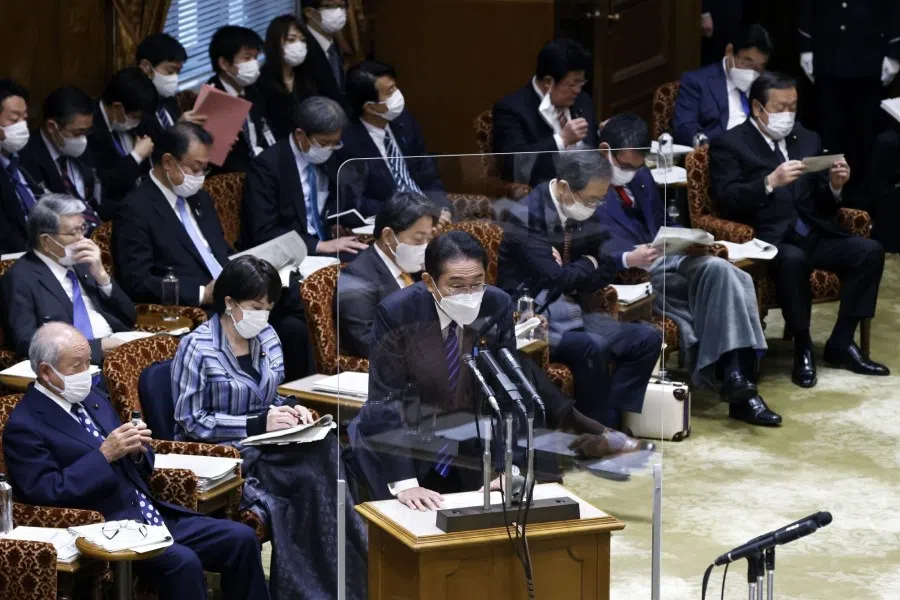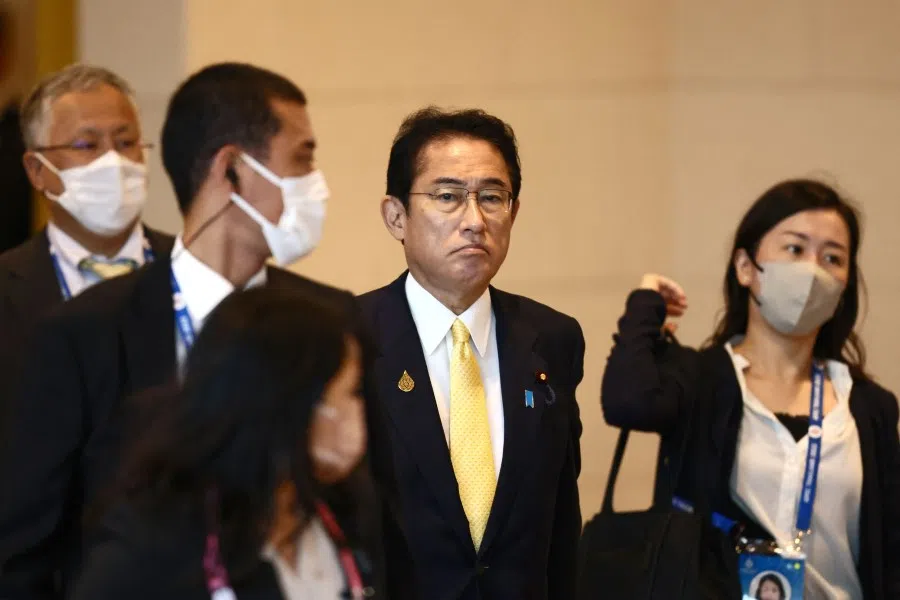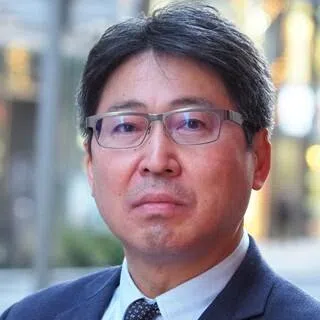Future of Japan-China relations not rosy despite summit
While the recent meeting between Japanese Prime Minister Fumio Kishida and Chinese President Xi Jinping is a good step in restoring relations on a good path, underlying tensions remain and the bilateral relationship may be rocky for some time yet.

On 17 November 2022, Japanese Prime Minister Fumio Kishida and Chinese President Xi Jinping held a face-to-face meeting on the sidelines of the APEC Summit in Bangkok. This was the first in-person Japan-China summit meeting in three years. As this year marks the 50th anniversary of the normalisation of diplomatic relations between Japan and China, this meeting unsurprisingly was outwardly filled with smiles to celebrate this 50th anniversary.
Kishida held back by domestic concerns
As an ex-foreign minister, Kishida had been expected to produce results in diplomacy when he became the prime minister. However, much time has passed without any significant diplomatic outcomes for Japan, especially with regard to China. One of the reasons for that is domestic politics.
The former Japanese Prime Minister Shinzo Abe, who was a conservative, was not criticised for being "pro-China" even when he leaned closer to China, but Kishida, thought to be a liberal, is different. If he tries to move even a little closer to China, he will face criticism from more than 80% of Japanese who feel negatively about China. The same is true for Foreign Minister Yoshimasa Hayashi.
In fact, the Kishida administration's approval rating has been declining and is currently below the party approval ratings of the Liberal Democratic Party (LDP).
...out of caution, in the presence of Premier Li Keqiang at the East Asia Summit in Cambodia on 13 November, Kishida had explicitly criticised China for its infringement of sovereignty in the East China Sea.

However, Kishida may have deemed the Japan-China summit meeting in Bangkok to be a relatively safe bet, as it was held amid multiple other meetings, and followed a recent bolstering of relations with Japan's allies and semi-allies such as the US and Australia.
Moreover, out of caution, in the presence of Premier Li Keqiang at the East Asia Summit in Cambodia on 13 November, Kishida had explicitly criticised China for its infringement of sovereignty in the East China Sea. This seemed to have been done in consideration of LDP's conservative forces and public opinion.
Meanwhile, Xi also indicated at the 20th Party Congress that he continued to attach importance to stabilising relations with "major powers". That was why he recently met with German Chancellor Olaf Scholz and US President Joe Biden. The meeting with Kishida was also held in the context of these summit meetings with Western countries.
In the future, summit and ministerial exchanges, and eventually a Japan-China-ROK trilateral summit meeting, will likely be feasible.
Constructive engagement
The two sides articulated their respective positions at the Japan-China summit and restored the path towards improved relations that former Prime Minister Abe had pursued since 2014. This "improvement" refers to a turnaround in bilateral relations with the resumption of summit exchanges after the Senkaku Islands (Diaoyu Islands) issue led to relationship deterioration. In the future, summit and ministerial exchanges, and eventually a Japan-China-ROK trilateral summit meeting, will likely be feasible.
The meeting was significant in several other ways as well. First, despite many outstanding issues and challenges, conducting summit exchanges at home and abroad helps to give the impression that the two countries are avoiding conflict.
Also, at this summit meeting, Japan and China agreed to establish a hotline as soon as possible under the maritime and air communication mechanism between the defence authorities of Japan and China, and strengthen communication through bilateral security dialogue and other means.
Second, "accurate" information is not always passed on to leaders in authoritarian states. The summit allowed Kishida to directly convey Japan's position, and was a valuable opportunity to speak to Xi directly and to avoid future conflicts.
Japan is also under military pressure from three sides: China, Russia, and North Korea.

Third, Kishida emphasised the importance of building a "constructive and stable Japan-China relationship", while Xi said that "Japan and China share many common interests and there is ample room for cooperation", indicating both sides' willingness to explore the potential for cooperation. As the security environment around Japan is deteriorating considerably, simply setting out the direction of "cooperation" would be meaningful for stabilising relations.
Tensions remain
However, attempts to avoid conflict and seek cooperation between Japan and China will not ease the security tensions in the East China Sea and the Taiwan Strait as well as around Japan. Japan-Russia relations have deteriorated with the war in Ukraine, and a combined Sino-Russian fleet has stepped up its activity in the waters near Japan. Japan is also under military pressure from three sides: China, Russia, and North Korea. Japan will probably adopt a new security policy in line with the three new security-related documents to be announced in December 2022.
Japan-China relations may indeed be "improving" overall, but only to the extent that a summit meeting could be held. But tensions in security issues are still rising even with the creation of a communication mechanism - the China Coast Guard's activities around the Senkaku Islands, as well as the People's Liberation Army's activities around Japan will likely intensify.
While economic ties may be strengthened, economic security issues remain between the two countries. The Chinese economy is not as dependent on foreign investment as it once was, so there are limits to strengthening relations with the economy as leverage, and it is becoming more difficult to separate the economy from politics as well. While there are youth exchanges and cooperation on common issues, it is unlikely that bilateral relations between Japan and China will improve dramatically for the time being.
Related: In search of better relations with Japan? China's inscrutable Japan policy | It's hard to be neighbours: When will Japan advance its diplomacy with China and South Korea? | Why Japan and China have totally different ideas of their foreign ministers' meeting | The generation gap in Japanese attitudes toward China





